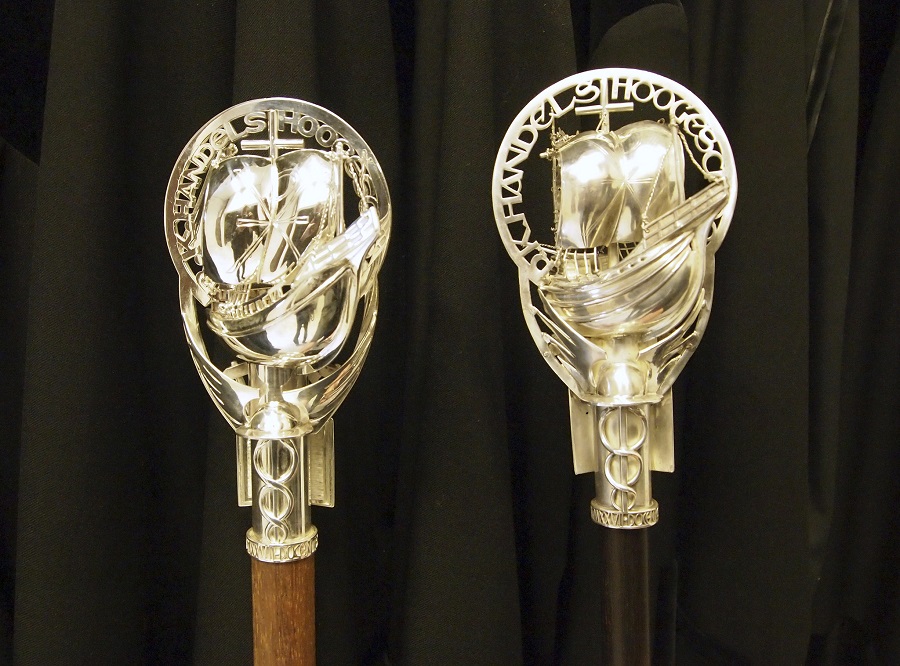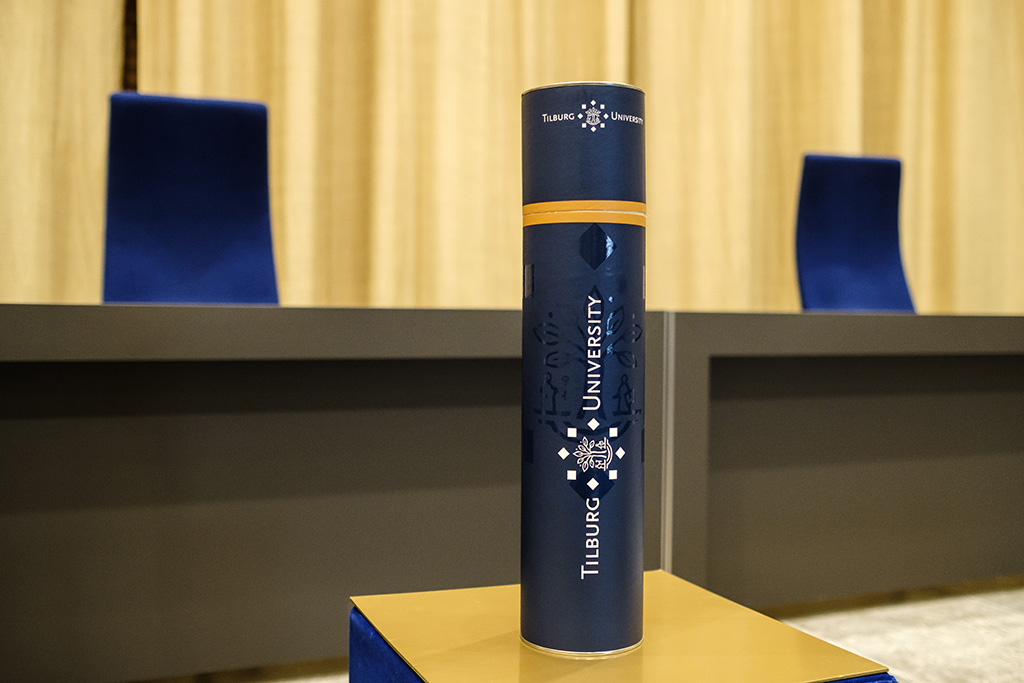Fail your thesis defense? It’s possible, as shown in updated TiU PhD Regulations
In the wake of a failed PhD defense, Tilburg University has amended the PhD Regulations. These are the main changes.

Tilburg University has amended its PhD Regulations. From now on, PhD researchers will all be properly prepared for the oral defense of their thesis, and any disability or functional impairment will be taken into account. There are firm provisions among them: there is considerably more emphasis on acting with integrity, and it is now in black and white that PhD researchers can fail the defense.
Some adjustments, such as those on the integrity of PhD researchers, had been on the agenda for some time, informs Head of Legal Affairs Renata van Leeuwaarde-Martens, who propagates the university’s position. Other adjustments follow a PhD defense in late 2021. A law PhD researcher, different from common practice, was not awarded the degree (in Dutch) after her defense.
Four of the five members of the PhD Committee were present. In a secret ballot—organized by the Dean of the Law School who acted as vice-chair—two Committee members voted against it. A third member had no vote; the fourth member voted in favor but to no avail. The PhD defense was suspended.
Ceremonial or not?
A highly unusual course of action, which caused much controversy in academia. For decades, the PhD defense was seen as purely ceremonial. Years of work have gone into a thesis, which is pre-approved and printed. And then a 45-minute oral exam could result in failure? Unthinkable, people commented.
The university sees it differently: the defense has always been part of the evaluation. Because there was much ambiguity about it, and to avoid such situations in the future, the PhD Regulations were amended as of June 1.
In between trips to the restroom
The aspiring doctor of science must have made at least two presentations about the PhD research at research meetings. This was already standing practice according to the university.
From now on, the defense should be adapted as much as necessary for PhD researchers with disabilities or functional limitations. For example, they can sit during the defense, go to the restroom in between, or be handed the questions when they are asked. With this, the university now also complies with the Dutch Equal Treatment of Disabled and Chronically Ill People Act, according to Van Leeuwaarde-Martens.
Being rejected
By far the most important provision of the amended PhD Regulations is point three of Article 9.5: ‘A negative advice of the PhD Committee is adopted by unanimous vote of all members of the PhD Committee present.’ A negative recommendation may be determined by secret vote. Those who are rejected will hear from the Doctorate Board within five working days how to proceed.

Disappointing, the Promovendi Netwerk Nederland (PNN) informs in the NRC. The PNN would have preferred that the ceremonial nature of the defense be explicitly established. Still, Tilburg University is not doing something that is non-existent. At fourteen out of fifteen Dutch universities, the defense can play a role in assessment, research by the PNN shows. Although the degree of importance attached to it varies greatly.
Can someone appeal, what does the procedure look like going forward? This is still too unclear, the PhD network believes. The university argues that these are ‘very exceptional situations’ that require ‘customization,’ and that this is ‘in the best interest of the PhD researcher.’
Secret vote
That secret vote, there is something to be said about that. It needed to be clearer how committee members could vote, thought the working group that drafted recommendations for the new regulations, but a secret vote was not discussed. The university chose this so that committee members would feel free to vote ‘after discussion has taken place.’ If that leads to a negative vote, Van Leeuwaarde-Martens said, ‘a PhD researcher will of course be informed of the justification.’
That justification was missing from the 2021 PhD defense, says Anna Meijknecht. She has worked at Tilburg University since 1996, including as a lecturer and researcher in international law, and was co-supervisor for the disputed PhD defense. ‘Very wrong,’ she thinks, that a secret vote is possible. ‘You are there to have a scientific discussion. But I still have no idea why committee members voted for or against it at the time.’
Was the university wrong?
Meijknecht believes such a rejection will not happen again in practice. The university says it is ‘fortunately very exceptional’, ‘that a degree is not awarded after a defense.’ The main safeguard seems to be the required unanimity. Only if every committee member present is against awarding the PhD does the party fail. Remarkable though: that would mean that the rejected legal scholar, who got one vote in favor, would get her PhD certificate the first time under the new rules. Is that a way of saying in retrospect that the university was indeed wrong?
Looking back, the university says it still ‘deeply regrets’ the situation, but also that it ‘acted to the best of its knowledge in a situation that was insufficiently foreseen.’ Meijknecht points out that only two of the total of five committee members voted against it at the time, by no means a unanimous verdict. The problem never lay with the PhD researcher, she sees again confirmed. ‘Everything that went wrong then, they have now perpetuated. They had to make thorough adjustments for this.’
Shocking, she thinks. ‘Criticism came from everywhere in the academic world in the Netherlands. Nothing was done with it at all.’ That PhD researchers are better prepared for the defense is a good thing, she thinks, but she sees the new rules mainly as ‘an enormous source of uncertainty.’ Nervous PhD researchers who do not hear questions properly or have trouble understanding their words now ‘run the risk of losing everything.’
Acting with integrity
The university is putting a lot more emphasis on integrity. PhD researchers must now also pass a scientific integrity training course and make an integrity statement at the end of the lay presentation and upon receiving the degree. ‘Things are being turned around here,’ says Anna Meijknecht. ‘I don’t know a single PhD researcher who lacks integrity.’
According to the university, these integrity provisions are not related to the previously rejected PhD defense. ‘It is about us taking responsibility as a university in educating our young scientists in the area of scientific integrity, and demonstrating to the academic world and the outside world that attention is being paid to this.’
The Tilburg advocacy group for PhD researchers TiPP says they were kept informed about the revised Regulations but had no direct input. However, they do see their call for clear rules reflected in it.
The jurist with whose PhD defense it all began, obtained the degree after a resit. To Univers, she reveals that the issue still has ‘a very strong impact’ on her. She wants to put it behind her.
Translated by Language Center, Riet Bettonviel






